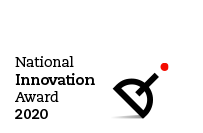New regulations: EU endorses organic and waste-based fertilizers

-
It will facilitate free circulation of organic fertilizers in the EU, putting them on equal terms with inorganic fertilizers
-
The regulation will offer greater market opportunities for innovative companies
Free circulation of organic and waste-based fertilizers in the EU market will become a reality after the new fertilizer regulation proposed by the European Commission is approved. Thus, they will be on an equal footing with inorganic fertilizers. Current regulations –effective since 2003– exclude fertilizers made from organic materials, so that their access to the community market had major obstacles due to the divergence of national rules.
“From the plentiful of resources available in the form of organic waste, very little of them are transformed into valuable fertilizer. Our farmers use fertilizers made of imported resources or with a lot of energy use involved, even though our industry could make bio-waste into valuable recycled nutrients”.
The phrase belongs to Jyrki Katainen, Vice-President of the European Commission in charge of its Jobs, Growth, Investment and Competitiveness area, while he was introducing the proposed new provisions on organic and waste-based fertilizers, which will greatly facilitate their access to the EU’s community market, “placing them on an equal footing with traditional inorganic fertilizers”.
This will create new market opportunities for innovative companies, while reducing the volume of waste, energy consumption and damage to the environment, argues the European Commission. “The new Regulation will help us turn challenges into opportunities for farmers and businesses”, says Katainen.
These new provisions would be the first measure of the circular economy package adopted in December 2015, which has the reuse of raw materials currently disposed of as waste as one of its key principles. This way, the European Union values the use of more environmentally friendly products.
Biowaste conversion
The new text lays down common rules about the conversion of bio-waste into raw materials that can be used to manufacture fertilizers. It defines the requirements for safety, quality and labeling requirements all fertilizer products must comply with in order to be freely sold throughout the EU. “Producers will have to demonstrate their products meet these requirements and comply with the limits for organic pollutants, microbial contaminants and physical impurities before marking them with the CE label”, says the European Commission.
In this sense, the Regulation sets strict limits for cadmium in phosphate fertilizers. The limits will become more stringent, from 60 mg/kg to 40 mg/kg in three years, and 20 mg/kg in twelve years, thus reducing health and environment risks.
The new rules will apply to all types of fertilizers in order to ensure the highest level of soil protection.
CE labels or national standards
Since some fertilizers are not produced or marketed across borders in large quantities, the Commission proposes optional harmonization: the manufacturer may choose, depending on its business strategy and product type, the CE labels, which enables its free trade on the domestic market in accordance with common European standards, or to sell it according to national standards based on mutual recognition in the community market. This guarantees the regulation improvement and subsidiarity principles are taken into account.
The scope of the current 2003 Regulation does not include “innovative fertilizers obtained from organic materials”, since it only guarantees free circulation within the internal market of conventional inorganic fertilizers, which “are usually obtained from mining or produced by chemical processes that consume energy and generate a lot of CO2”.
Thus, access organic fertilizers to the EU market of currently depends on mutual recognition among Member States and, “due to the divergence of national rules, it is often difficult”, stated the European Commission.
Besides, the Regulation on fertilizers in force “does not address the environmental concerns arising from contamination of soils, inland waters, marine waters and, ultimately, food”.
“Today, only 5% of bio-wastes are recycled. According to estimates, if more IP/16/827 biowaste were recycled, they could substitute up to 30% of inorganic fertilizers”, said the same sources, while highlighting the fact that “each year, the EU imports about 6 million tons of phosphates, and it could replace up to 30% of that extracting them from sewage sludge, biodegradable waste, meat and bone meal or manure”.
European Parliament and Council
The draft regulation will now be sent to the European Parliament and the Council, which must adopt it. Once adopted, it will be directly applicable without transposition into national law, after a transitional period for enterprises and public authorities to adapt to the new rules.
Source: European Commission

